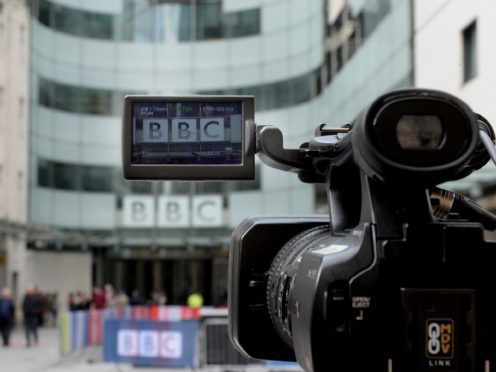The BBC must improve its transparency, take more creative risks and endeavour to attract more young viewers, Ofcom has said.
The corporation must also prioritise making original UK programmes in order to remain distinctive, the regulator’s annual report on the corporation added.
The BBC is not always transparent and accountable, particularly when it is proposing to change or introduce public services, Ofcom found.
Ofcom has published its annual report on the BBC’s performance. We found the BBC is generally delivering for its audiences but should go further in four areas:
— Ofcom (@Ofcom) October 25, 2018
The report said: “The BBC invited meaningful feedback last year on its plans for a new BBC Scotland channel. But, more recently, it has not provided enough information on planned changes to the iPlayer.
“This lack of transparency could disadvantage other UK media, meaning audiences could ultimately lose out. The BBC Board should drive improvements here.”
Ofcom’s report comes on the same day the BBC was criticised by the Digital, Culture, Media and Sport (DCMS) Committee for failing female employees who suffer under an “invidious culture” of discrimination against women.
The report by the watchdog also raised concerns that the BBC’s public-service and commercial activities are sufficiently separate, adding that the governance of the BBC’s commercial activities should be more transparent.
“The BBC has said it intends to enhance transparency in this area,” the report added.
The corporation must also be more innovative and take more risks in its commitment to original UK content, Ofcom said, both in the type of programmes it commissions but also with how they are made and with whom.
1. The BBC is not reaching enough young people. https://t.co/M1h97x2qzu pic.twitter.com/SEJ5zwv0Fa
— Ofcom (@Ofcom) October 25, 2018
Ofcom said: “This may require a significant change in approach for the BBC, as less than six in 10 (57%) BBC TV viewers consider it to be taking creative risks and innovating in its programmes.”
While the BBC is generally delivering its remit for audiences, it is failing to reach enough young people, and Ofcom estimates that young people spend around one hour and 20 minutes with BBC content every day – half as much time as audiences overall.
While this reflects a wider shift in their viewing habits, the report noted that young people spend almost as much time watching ITV on a TV set, for example, as BBC One, compared with viewers as a whole, who spend around 50% more time watching BBC One than ITV.
The report said: “The BBC recognises it needs to do more, and more quickly, to reach young people who are critical to its future success.
“As well as providing content that appeals, it needs to find new ways of reaching younger people that suit and reflect their viewing and listening habits.”
3. Improvements in transparency, so as not to disadvantage other UK media, otherwise audiences could ultimately lose out. https://t.co/M1h97x2qzu pic.twitter.com/rOolT2RUQ2
— Ofcom (@Ofcom) October 25, 2018
Ofcom also found that while viewers thought the BBC – and TV in general – represents a wider mix of people than it used to, some people still feel less visible or that they are portrayed in inauthentic ways.
In publishing its conclusions of a review of representation and portrayal on BBC television, the watchdog said: “Some people feel that older women are featured less frequently on BBC TV outside of a narrow set of genres such as soaps, chat shows and dramas.
“Some disabled people said the BBC, and TV in general, tends to focus on their difficulties and struggles, while portrayal of mental health issues was limited. People also want to see greater representation of the UK outside of its major cities, and national identity to be portrayed without stereotypes.”
Ofcom chief executive Sharon White said: “Viewers and listeners have told us the BBC is generally doing a good job. But it can go further in some areas.
“We expect the BBC to do more in attracting younger people, being bolder in the programmes it makes, and making original UK programmes that accurately reflect the lives of people around the UK.”
A BBC spokesman added: “We’re pleased Ofcom has found we’re delivering on our remit to provide distinctive and creative content for the public alongside a range of services no commercial broadcaster provides.
“We note the recommendations and will continue to discuss these with Ofcom.”
